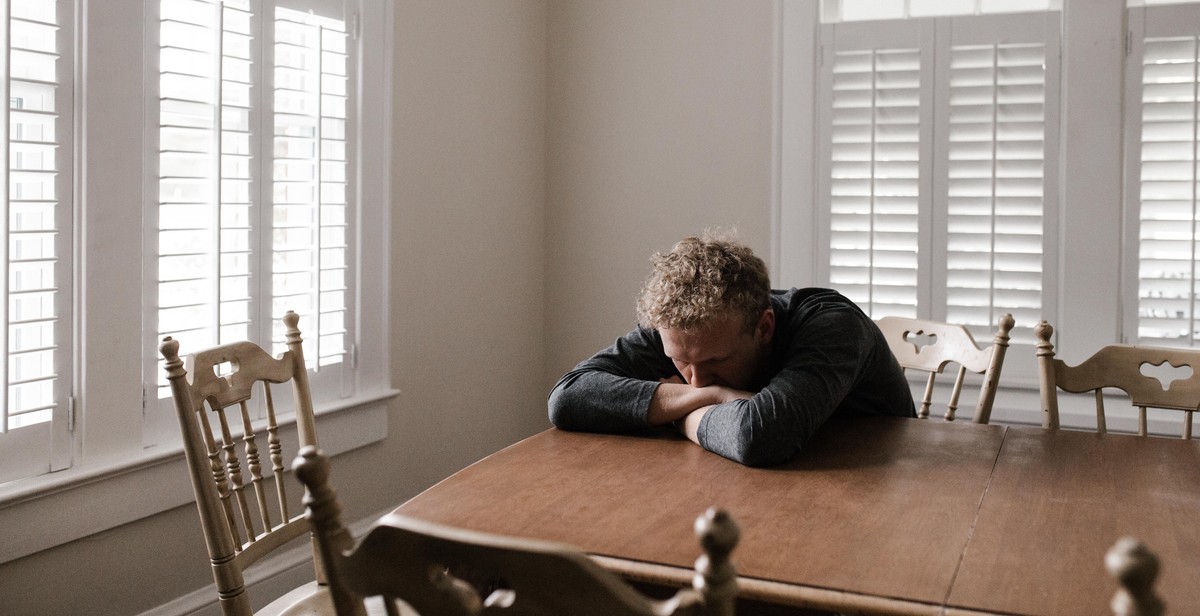Overcoming Social Phobia: A Journey Towards Fearless Interactions
Social phobia, also known as social anxiety disorder, is a common mental health condition that affects millions of people worldwide. It is characterized by an intense fear of social situations and interactions, which can lead to avoidance and isolation. The fear of being judged, criticized, or embarrassed can be overwhelming, making it difficult to form meaningful relationships or pursue personal and professional goals.
As someone who has personally struggled with social phobia, I understand the challenges and frustrations that come with this condition. However, I also know that it is possible to overcome social phobia and live a fulfilling, fear-free life.
The Importance of Seeking Help
One of the most important steps in overcoming social phobia is seeking professional help. A mental health professional can provide a diagnosis and develop a personalized treatment plan that may include therapy, medication, or a combination of both. It is important to work with a qualified and experienced therapist who specializes in anxiety disorders.
The Journey Towards Fearless Interactions
Overcoming social phobia is a journey that requires patience, persistence, and a willingness to face your fears. It involves challenging negative thoughts and beliefs, practicing social skills, and gradually exposing yourself to feared situations. With time and effort, you can learn to manage your anxiety and develop the confidence to engage in social interactions with ease.
In this article, I will share my personal experience with social phobia and the strategies that have helped me overcome my fears. I hope that my story will inspire and encourage others who are struggling with social anxiety to seek help and embark on their own journey towards fearless interactions.
What is Social Phobia?
Social phobia, also known as social anxiety disorder, is a mental health condition characterized by an intense fear of social situations. Individuals with social phobia may experience extreme anxiety and discomfort in social situations, such as speaking in public, meeting new people, or attending social gatherings. The fear of being judged, ridiculed, or rejected by others is often at the root of social phobia.
Defining Social Phobia
Social phobia is a type of anxiety disorder that affects millions of people worldwide. According to the Diagnostic and Statistical Manual of Mental Disorders (DSM-5), social phobia is defined as:
A marked and persistent fear of one or more social situations in which the individual is exposed to possible scrutiny by others, and the fear is excessive or unreasonable.
Individuals with social phobia may experience physical symptoms such as trembling, sweating, blushing, or nausea when faced with a social situation. The fear and anxiety associated with social phobia can be so intense that it interferes with an individual’s daily life and functioning.
Causes of Social Phobia
The exact causes of social phobia are not fully understood, but research suggests that a combination of genetic, environmental, and psychological factors may contribute to the development of the disorder.
- Genetic factors: Studies have shown that social phobia may run in families, suggesting a genetic component to the disorder.
- Environmental factors: Traumatic or stressful life experiences, such as bullying or humiliation, may increase the risk of developing social phobia.
- Psychological factors: Low self-esteem, negative self-talk, and a tendency to catastrophize social situations may also contribute to the development of social phobia.
It is important to note that social phobia is a treatable condition, and seeking professional help can lead to significant improvements in symptoms and overall quality of life.
My Personal Experience with Social Phobia
For years, I struggled with social phobia, also known as social anxiety disorder. It wasn’t until I recognized the symptoms and sought help that I was able to start my journey towards fearless interactions.
Recognizing the Symptoms
At first, I didn’t realize that what I was experiencing was social phobia. I just thought I was shy or introverted. But as time went on, I noticed that my fear of social situations was impacting my daily life. I would avoid parties, meetings, and even simple interactions with coworkers or classmates. I would worry about what others thought of me, and I would often feel physically ill before and during social events.
It wasn’t until I did some research and talked to a therapist that I realized I had social phobia. Some common symptoms of social phobia include:
- Fear of social situations
- Feeling self-conscious or embarrassed
- Physical symptoms like sweating, shaking, or nausea
- Avoiding social situations
- Difficulty making eye contact or speaking in public
How Social Phobia Affected My Life
Social phobia had a significant impact on my life. It made it difficult for me to make friends, advance in my career, and even enjoy simple activities like going to the movies or dining out. I would constantly worry about what others thought of me, and I would often ruminate on past social interactions, analyzing every word and action.
As a result, I felt isolated and alone. I would often cancel plans at the last minute or make excuses to avoid social situations. This behavior only reinforced my fear and made it more difficult for me to overcome my social phobia.
Taking the First Steps Towards Overcoming Social Phobia
It took a lot of courage for me to take the first steps towards overcoming my social phobia. I started by talking to a therapist, who helped me identify my triggers and develop coping strategies. I also started attending social events, even if it was just for a short time, and gradually worked my way up to longer and more challenging interactions.
Other strategies that helped me overcome my social phobia include:
- Practicing mindfulness and relaxation techniques
- Challenging negative thoughts and beliefs
- Building a support network of friends and family
- Exercising regularly and eating a healthy diet
- Seeking out social situations that I enjoy and feel comfortable in
Overcoming social phobia is a journey, and it’s not always easy. But with the right strategies and support, it is possible to overcome this debilitating condition and live a full and satisfying life.

Effective Strategies for Overcoming Social Phobia
Social phobia, also known as social anxiety disorder, can be debilitating and significantly impact one’s quality of life. Fortunately, there are several effective strategies for overcoming social phobia:
Cognitive Behavioral Therapy (CBT)
CBT is a type of therapy that focuses on changing negative thought patterns and behaviors. It has been found to be highly effective in treating social phobia. During CBT sessions, a therapist will work with the individual to identify negative thought patterns and replace them with more positive ones. They will also teach coping skills and techniques to help manage anxiety in social situations.
Exposure Therapy
Exposure therapy involves gradually exposing oneself to feared social situations in a safe and controlled environment. This can help desensitize the individual to the anxiety-provoking situation and build confidence in their ability to handle it. Exposure therapy can be done with a therapist or through self-directed practice.
Mindfulness and Meditation
Mindfulness and meditation can be effective tools for managing anxiety and improving overall well-being. By practicing mindfulness and meditation regularly, individuals can learn to focus on the present moment and reduce the impact of negative thoughts and emotions. This can be especially helpful in social situations where anxiety can be triggered by negative self-talk or anticipation of future events.
Support Groups and Peer Support
Support groups and peer support can provide a sense of community and understanding for individuals with social phobia. This can be especially helpful for those who feel isolated or alone in their struggles. Support groups can provide a safe space to share experiences, learn coping strategies, and receive encouragement from others who have similar experiences.
| Strategy | Description |
|---|---|
| Cognitive Behavioral Therapy (CBT) | A type of therapy that focuses on changing negative thought patterns and behaviors. |
| Exposure Therapy | Involves gradually exposing oneself to feared social situations in a safe and controlled environment. |
| Mindfulness and Meditation | Can be effective tools for managing anxiety and improving overall well-being. |
| Support Groups and Peer Support | Provide a sense of community and understanding for individuals with social phobia. |
Overall, overcoming social phobia is a journey that takes time and effort. However, with the right strategies and support, it is possible to live a fulfilling and fearless life.

Conclusion
Overcoming social phobia is not an easy task, but it is possible. With the right mindset, support, and tools, anyone can learn to manage their anxiety and build confidence in social situations. It takes time and effort, but the rewards are worth it.
Tools and Resources
There are many resources available to help individuals overcome social phobia. Seeking therapy from a licensed mental health professional is a great place to start. Cognitive-behavioral therapy (CBT) and exposure therapy are two effective treatments for social anxiety. Additionally, support groups, self-help books, and online forums can provide valuable insights and tips for managing social anxiety.
Personal Experience
As someone who has struggled with social anxiety in the past, I know firsthand how difficult it can be to overcome. However, with the help of therapy and support from loved ones, I was able to learn coping mechanisms and build confidence in social situations. It was a journey, but the results were life-changing.
Final Thoughts
Overcoming social phobia is a journey towards fearless interactions. It takes time, effort, and support, but it is possible. Remember to be patient with yourself, celebrate small victories, and seek help when needed. With dedication and perseverance, you can conquer your social anxiety and live a fulfilling life.
